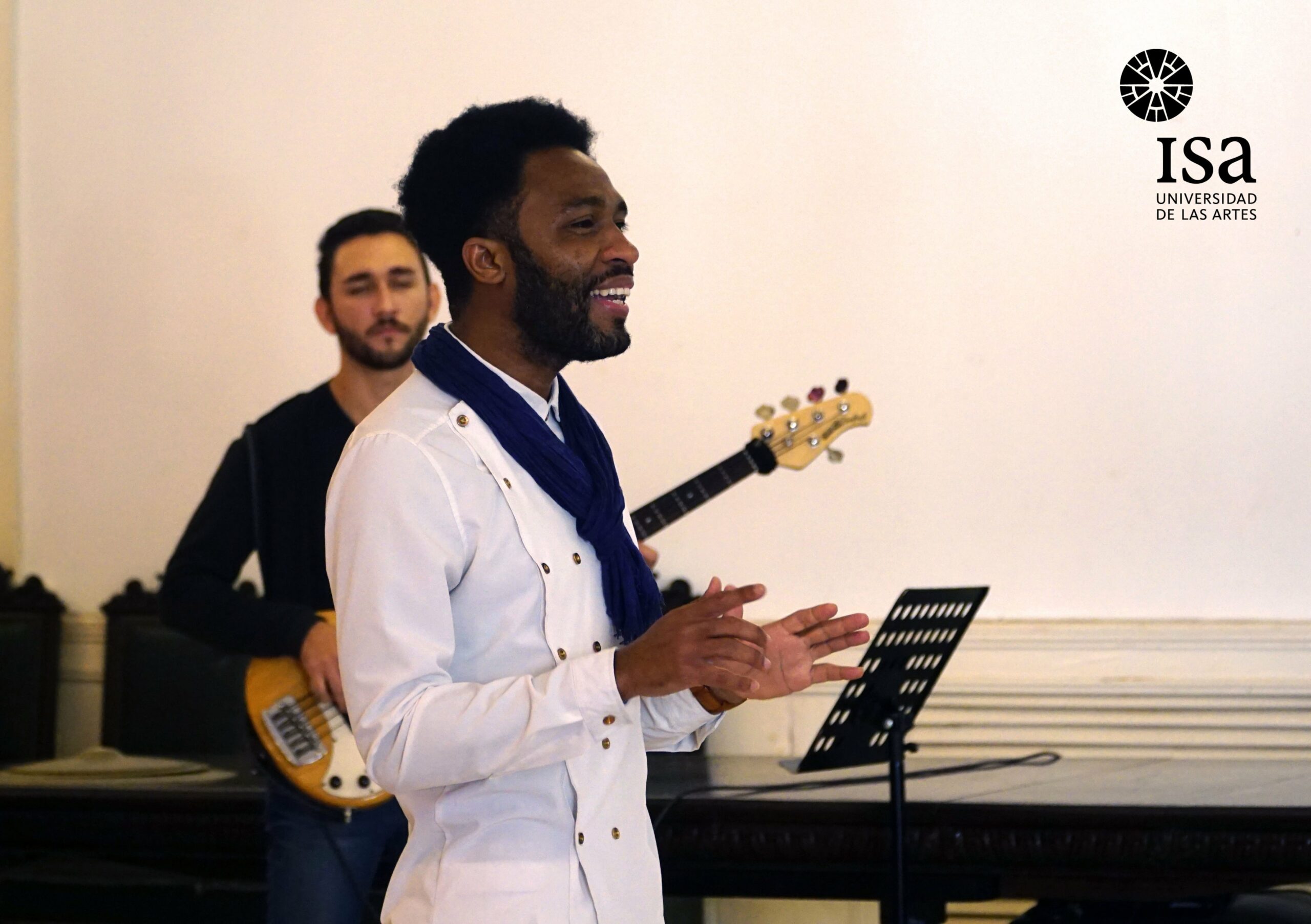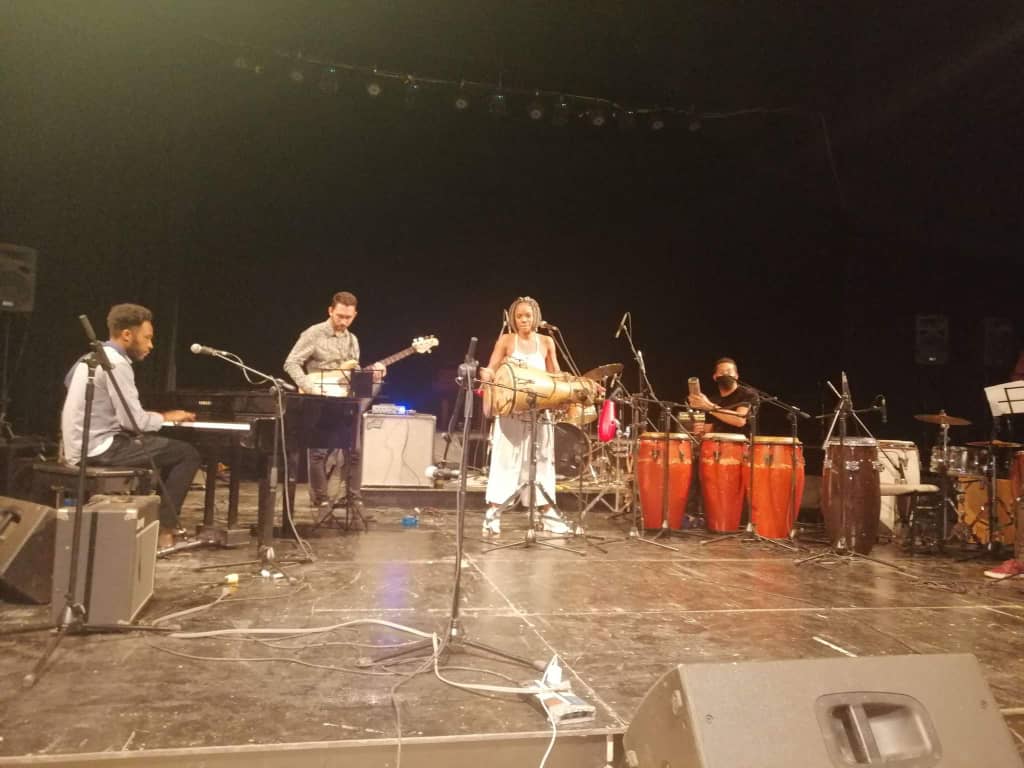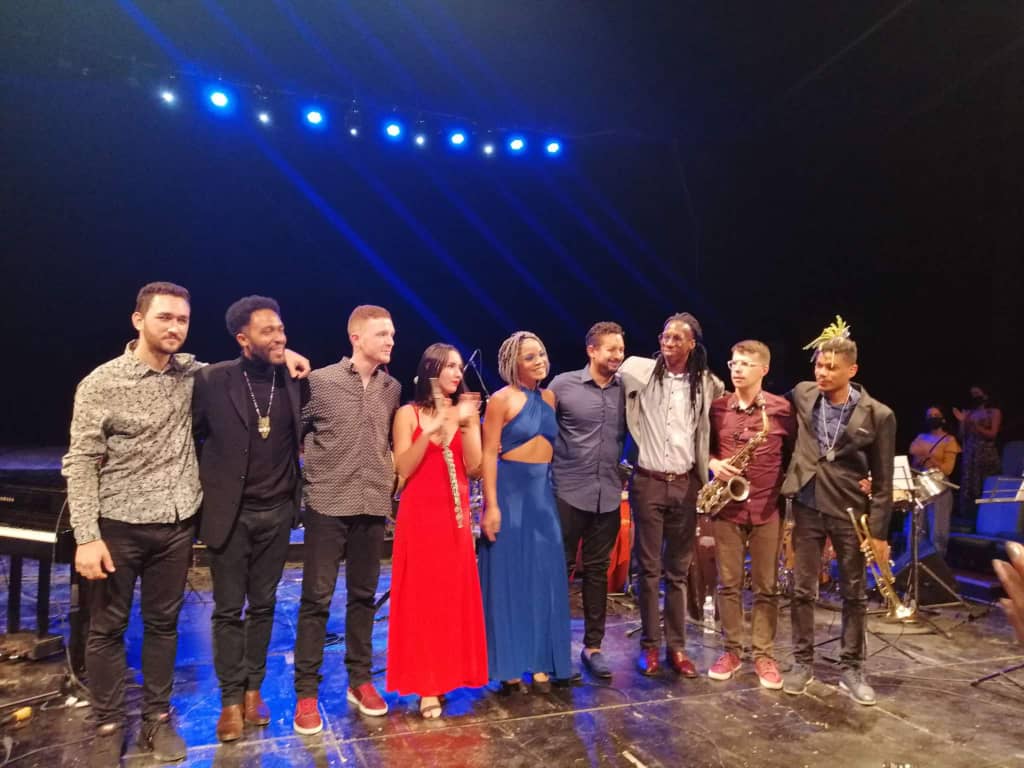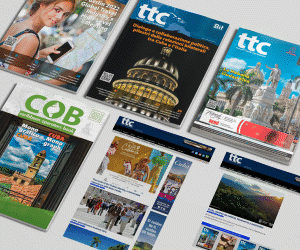The virtuoso Cuban pianist and composer Dayramir González has once again delighted his audience in Havana within the framework of the 37th International Jazz Plaza Festival 2022. The Tito Junco room of the Bertolt Brecht Cultural Center was decked out this Thursday night to welcome Dayramir and his guests; a concert that the musician described as “wonderful” and where the New York sound mixed with Afro-Cuban shone.
Dayramir, who grew up in a family of musicians, began his piano studies at the age of 7 and at 16, already with a solid classical background, began his professional life with the ex-Irakere Oscar Valdés’ group, playing in all the jazz clubs in Havana and participating in the International Jazz Plaza Festival in 2000 and 2001.
“I have been growing up with the festival. I have been participating in the Festival since I was 16 years old and it has always been a wonderful platform that has always been kind enough to invite young people and trust young people,” this Cuban musician, who traveled from New York to Havana to participate again in the musical event, told the press.
In 2002 he put together a jazz quintet made up of young people from the National Art School (ENA), and they performed at the Jazz Festival that year, sharing the stage with saxophonist Janne Brunnet, Timbalaye and Ramón Valle, among others. In the following editions (2003 and 2004) he appeared as a guest with different formats.
In 2005 he joined the list of excellent musicians made up by drummer Giraldo Piloto’s Klímax group, touring Tenerife and sharing the stage with Jerry Rivera.
Parallel to his work with Klímax, in the middle of that year he decided to create his own group: Dayramir & Habana enTrance. Towards the end of 2005 he won the Young Jazz Players Contest, Jojazz, which earned him his entry into the record world, collaborating with musicians of the stature of Elmer Ferrer and three great saxophonists: ex-Irakere Javier Zalba and César López, and also clarinetist and former member of Pablo Milanés’ group (Cubajazz) Orlando Sánchez.
His virtuosity and his vision of current Cuban jazz, which has been widely accepted by specialized critics, earned him a scholarship at one of the world’s leading jazz institutions, the Berklee College of Music in Boston. Thus, in the fall of 2010, Dayramir traveled to the United States and became the first Cuban living in Cuba to begin studies at that demanding and prestigious center.
True to his premise of “giving and receiving,” during his stay in Havana and in the framework of the collateral activities of the Festival, this talent from Cuban classrooms has given master classes at the Higher Institute of Art and has held meetings with music students in the Cuban capital; an opportunity that he has taken advantage of to share all the knowledge that he has been acquiring in New York, “all the harmonic, cultural, counterpoint, thought background, how to study, how to prepare a study routine…we talked about all of that with young people because they have to be motivated that way,” he told Cuba Sí.
Dayramir has shared the stage with Chucho Valdés, Bobby Carcassés, Ernán López-Nussa, Pacho Terry, Omara Portuondo, Teté Caturla, Raúl Pineda, Janne Brunnet, Timbalaye, Ramón Valle, Jimmy Brandly, Ignacio Berroa, saxophonist Greg Osby, Larry Harlow (pianist of the Fania All Star) and Eddie Palmieri.
In response to a question from journalist Joaquín Borges Triana, Dayramir stressed that “when we say a Cuban musician, we are talking about a musician who is quite comprehensive, from the point of view of language, of preparation, and I, as a cultural, social, Cuban ambassador that I consider myself, aware, I know that I have a very beautiful responsibility on my shoulders, which is to raise the name of Cuban piano music.”
Later, exclusively for Cuba Sí, he told us about his exchanges with young art students:
“For me it has been the most rewarding moment of my stay here in Havana so far. On Monday I was at the Amadeo Roldán Conservatory; on Tuesday, at the ENA (National School of Art), and then I was at the ISA (Higher Institute of Art). It was gratifying to be with the young people, wonderful feedback, going back to the school where I studied and being able to give back. Many of the things that I have been learning in New York, all the harmonic, cultural, counterpoint, thought background, how to study, how to prepare a study routine…we talked about all of that with young people because they have to be motivated that way.”
For him, the potentialities of Cuban musicians, and especially of pianists, are immense. This is how he expressed it in response to a question from journalist Joaquín Borges Triana:
“It is very strong, because we are blessed that the Cuban pianist has such a high background, not only in jazz, we Cuban musicians are lucky that we can play jazz and bebop in the same way that American blacks play it, but we have the push, later, of religious music. Cuba is blessed, because we have ethnic groups that came from the Congo, Benin, Nigeria; we have the Haitians with the French tumba; we have the purely Cuban rumba; classical music with the European training that we also receive here….
“When we say a Cuban musician, we are talking about a musician who is quite comprehensive, from the point of view of language, of preparation, and I, as a cultural, social, Cuban ambassador that I consider myself, aware, I know that I have a very beautiful responsibility on my shoulders, which is to raise the name of Cuban piano music.”
And that’s what Dayramir is doing in the Big Apple and around the world, making Cuba sound, in his own way and with a lot of heart, as in Tributo a Juan Formell y los Van Van, the album that he will present next Saturday:
“This is a wonderful album, where I wanted to take Los Van Van out of their comfort zone. It is an album where I was aware of wanting to work with Los Van Van, but from the composer. We made wonderful versions. There is a theme that perhaps young Cubans do not know so much, which is called ‘Tu decisión cuál es.’ This number has no lyrics, so it was a wonderful justification to make it jazzy.
“The album contains a lot of Cuban,” warned the author at the press conference, and in an aside with Cuba Sí he added: “There is a wonderful tour of Los Van Van’s music, but with many influences from Benny Moré, from the Jorrín band, from Duke Ellington with his Big Band, from Mozart, Beethoven, with European classical music, there are a lot of wonderful colors there that you are going to listen to and I hope you like it.”
He has come to Cuba for the first time with his New York musicians, and with them he performed this Thursday at the Tito Junco room, of the Bertolt Brecht Cultural Center, and on Friday at the Teatro América. Both concerts offer us the opportunity to get closer to his most recent record production: “The Grand Concourse, a wonderful album that has also opened many doors for me, because it is the music that I have been composing for the last four or five years.”

MORE NEWS













